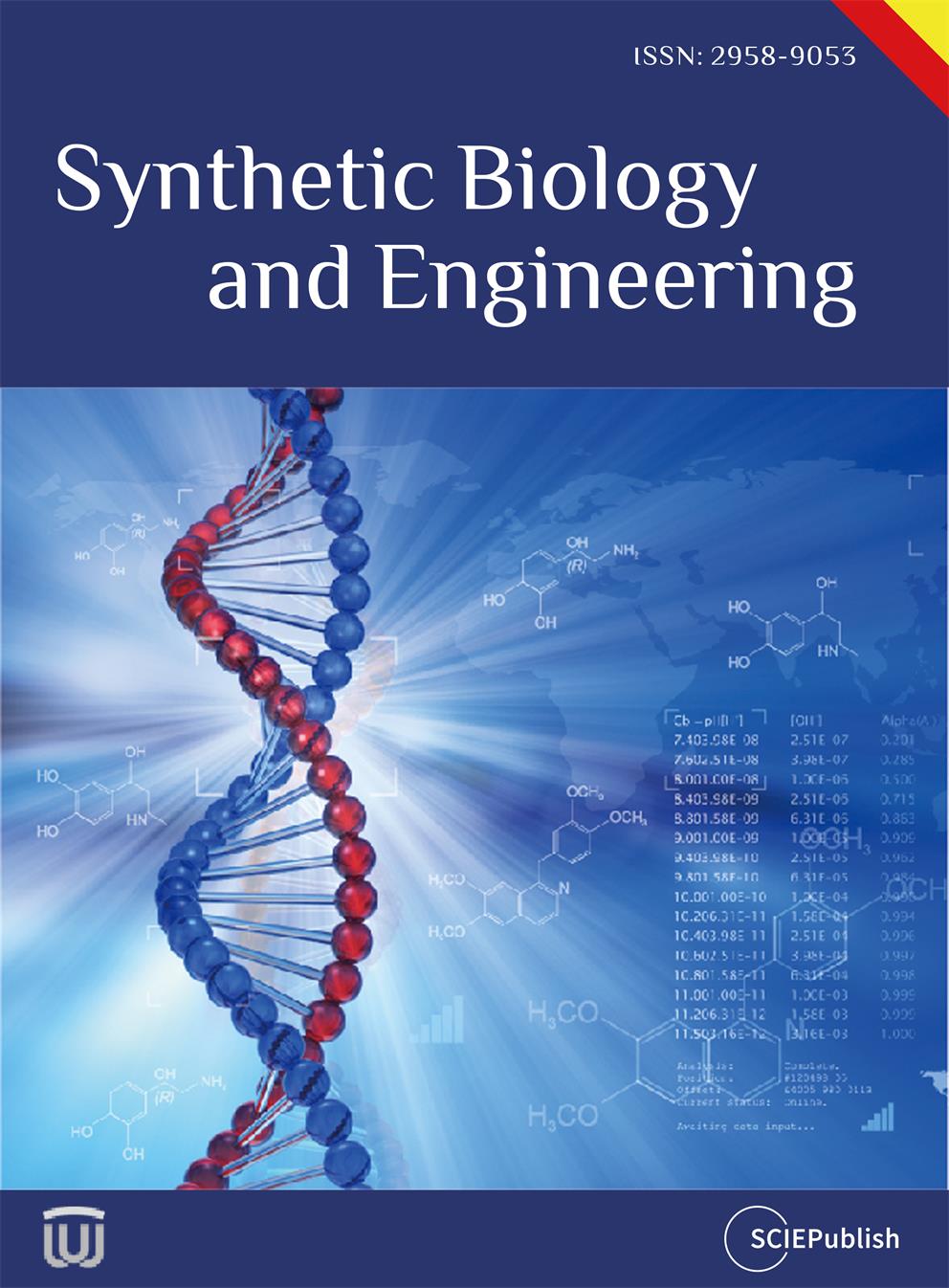Found 5 results
Perspective
29 December 2023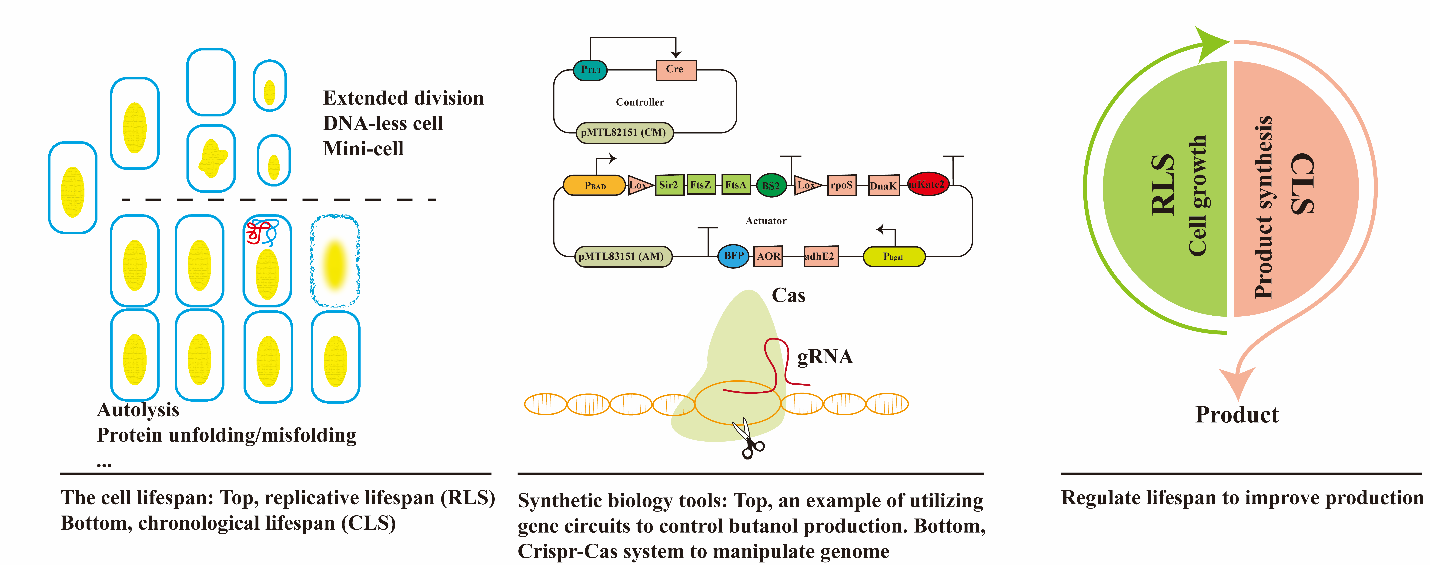
Review
31 October 2023Metabolic Engineering of Microorganisms Towards the Biomanufacturing of Non-Natural C5 and C6 Chemicals
Five-carbon (C5) and six-carbon (C6) chemicals are essential components in the manufacturing of a variety of pharmaceuticals, fuels, polymers, and other materials. However, the predominant reliance on chemical synthesis methods and unsustainable feedstock sources has placed significant strain on Earth’s finite fossil resources and the environment. To address this challenge and promote sustainability, significant efforts have been undertaken to re-program microorganisms through metabolic engineering and synthetic biology approaches allowing for bio-based manufacturing of these compounds. This review provides a comprehensive overview of the advancements in microbial production of commercially significant non-natural C5 chemicals, including 1-pentanol, 1,5-pentanediol, cadaverine, δ-valerolactam, glutaric acid, glutaconic acid, and 5-hydroxyvaleric acid, as well as C6 chemicals, including cis, cis-muconic acid, adipic acid, 1,6-hexamethylenediamine, 6-aminocaproic acid, β-methyl-δ-valerolactone, 1-hexanol, ε-caprolactone, 6-hydroxyhexanoic acid, and 1,6-hexanediol.
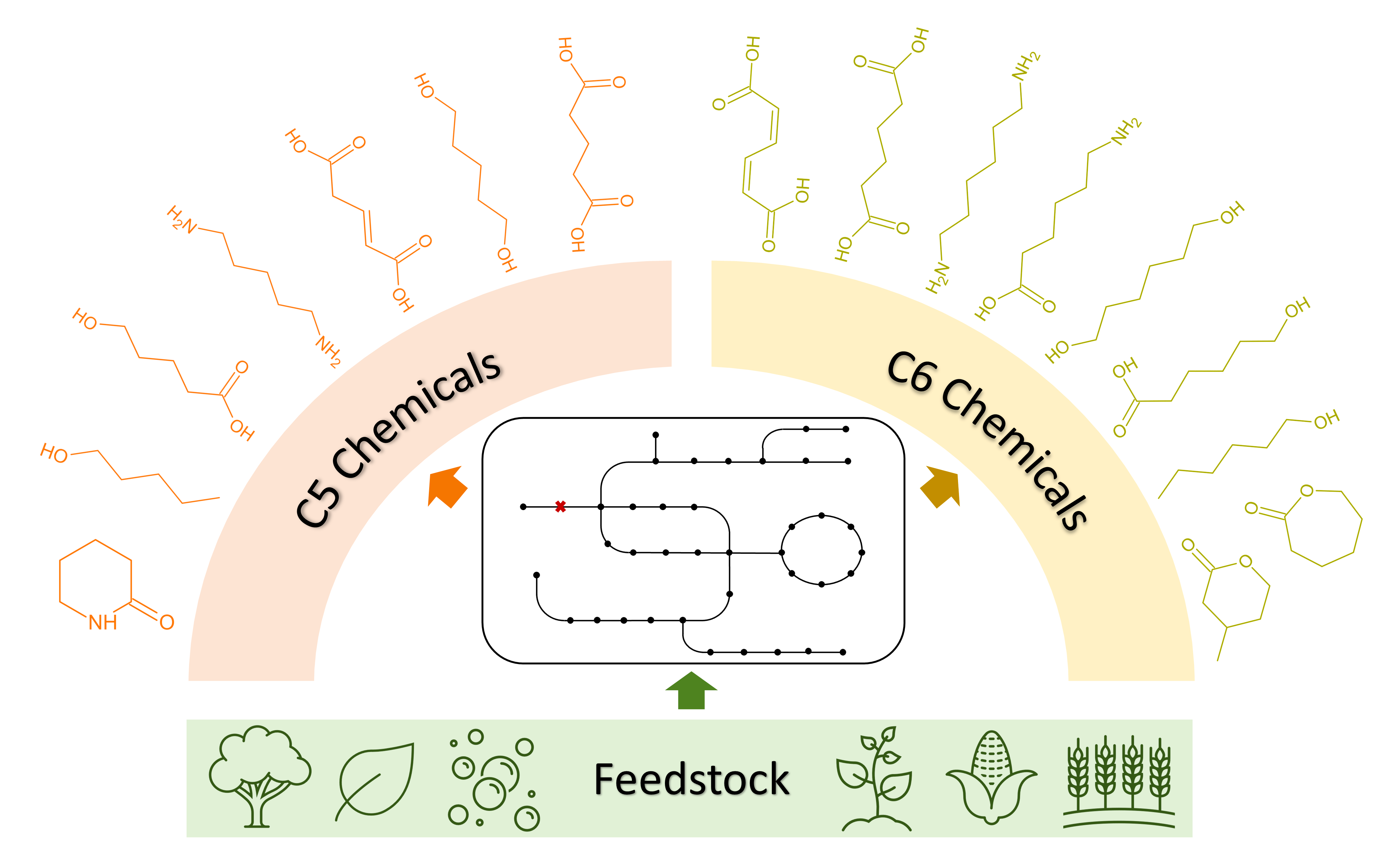
Review
01 September 2023In Vitro BioTransformation (ivBT): Definitions, Opportunities, and Challenges
Great needs always motivate the birth and development of new disciplines and tools. Here we propose in vitro BioTransformation (ivBT) as a new biomanufacturing platform, between the two dominant platforms—microbial fermentation and enzymatic biocatalysis. ivBT mediated by in vitro synthetic enzymatic biosystems (ivSEBs) is an emerging biomanufacturing platform for the production of biocommodities (i.e., low-value and bulk biochemicals). ivSEB is the in vitro reconstruction of artificial (non-natural) enzymatic pathways with numerous natural enzymes, artificial enzymes, and/or (biomimetic or natural) coenzymes without living cell’s constraints, such as cell duplication, basic metabolisms, complicated regulation, bioenergetics, and so on. The two great needs (i.e., food security and the carbon-neutral renewable energy system) have motivated the birth and development of ivBT. Food security could be addressed by making artificial food from nonfood lignocellulose and artificial photosynthesis for starch synthesis from CO2. The carbon-neutral renewable energy system could be addressed by the construction of the electricity-hydrogen-carbohydrate cycle, where starch could be a high density of hydrogen carrier (up to 14.8% H2 wt/wt) and an electricity storage compound (greater than 3000 Wh/kg). Also, ivBT can make a number of biocommodities, such as inositol, healthy sweeteners (e.g., D-allulose, D-tagatose, D-mannose), advanced biofuels, polymer precursors, organic acids, and so on. The industrial biomanufacturing of the first several biocommodities (e.g., myo-inositol, D-tagatose, D-mannose, and cellulosic starch) would wipe off any prejudice and doubt on ivBT. Huge potential markets of biocommodities with more than tens of trillions of Chinese Yuan would motivate scientists and engineers to address the remaining technical challenges and develop new tools within the next decade.
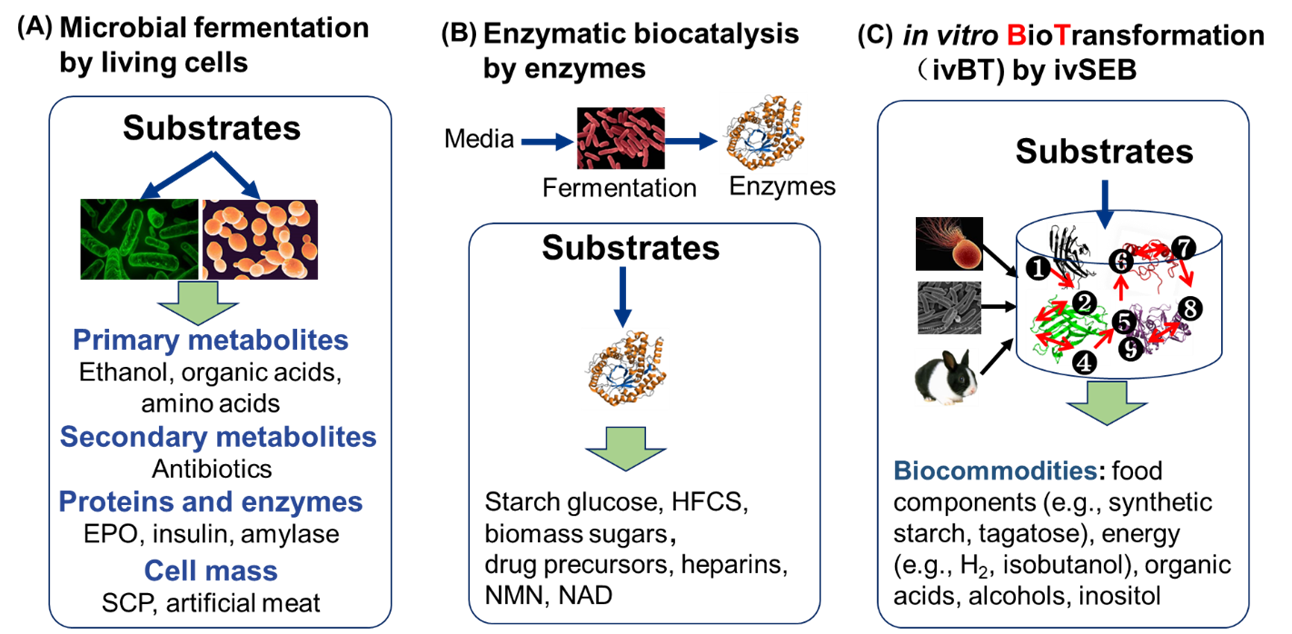
Review
28 July 2023Challenging Post-translational Modifications in the Cell-free Protein Synthesis System
Post-translational modifications (PTMs) represent a cornerstone in the complexity of the proteome, significantly contributing to diversifying protein structure and function. PTMs can considerably influence protein function, stability, localization, and interactions with other molecules. Therefore, it is important when choosing a protein expression system to ensure the precise incorporation of PTMs during protein synthesis, which is paramount for producing biologically active proteins. The cell-free protein synthesis (CFPS) system has emerged as a powerful protein synthesis platform and research toolkit in synthetic biology. The open nature of the system allows the reaction environment to be tailored to any protein of interest to promote specific PTMs, thus allowing for the production of a protein with desired modifications. This review presents various PTMs achieved in the CFPS systems, providing insights into current challenges, successes, and future prospects.
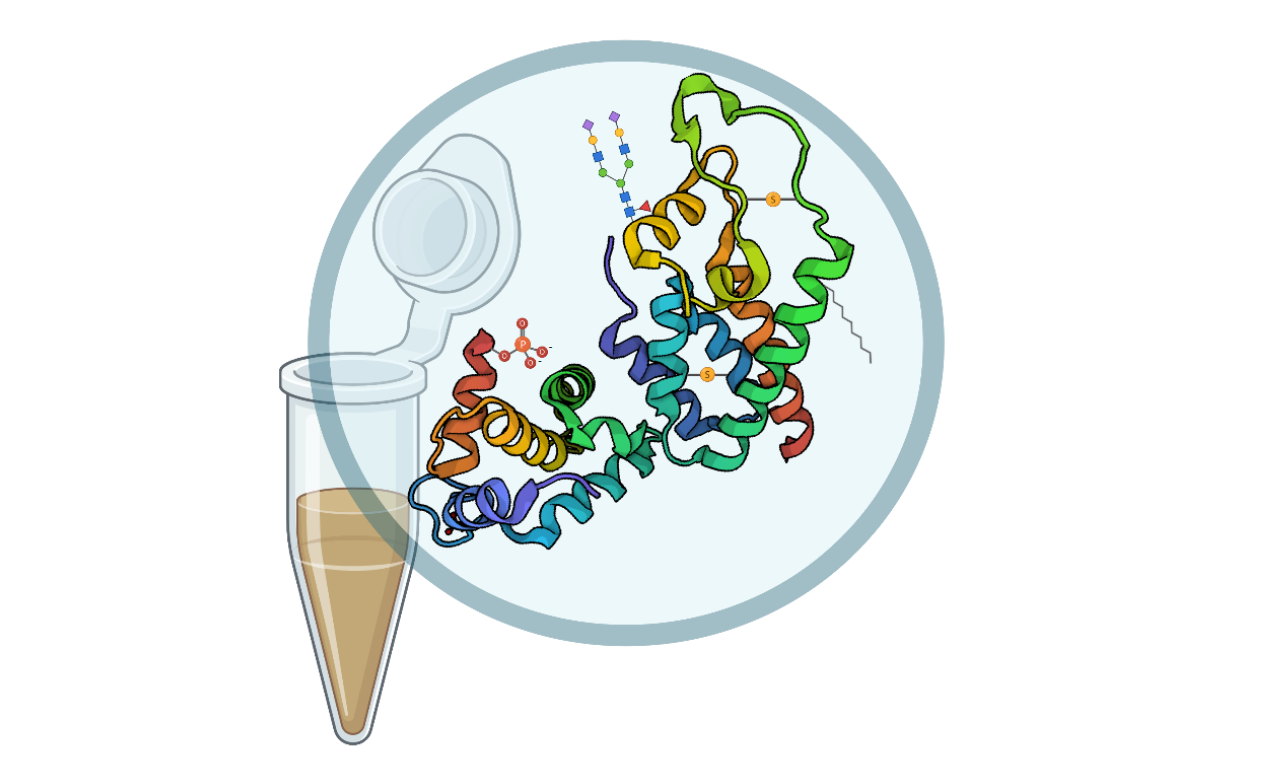
Editorial
13 December 2022